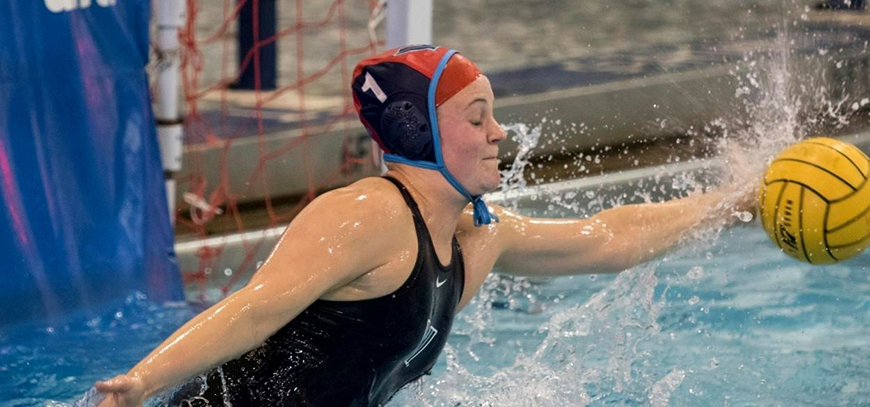Water Polo or Engineering…Why Not Both?
by Daniel Fetsko ’19 CE

Given the academic rigor of Villanova’s engineering program, many people assume students in this major are unable, or at least unlikely, to pursue varsity athletics. Julie Conrath ’16 ChE, however, is just one of several engineering students who manage to excel not only in the classroom, but in competitive sports as well. Julie has been playing water polo since her freshman year of high school, and now serves as the goalie and co-captain for the Villanova varsity water polo team, which currently owns a 10-10 record heading into Metro Atlantic Athletic Conference (MAAC) play, which extends into mid-April. Julie holds the individual school records for single-season saves, with 407 last season, and career saves, accumulating 734 prior to the start of her senior season. In addition to being a co-captain, she was voted co-MVP last season and is on the Student-Athlete Advisory Committee.
Julie has had just as much success in her courses as she has had in the pool, maintaining an impressive 3.8 GPA and a perfect honor roll record. Following graduation this May, she will take on a full-time civilian position at Naval Sea Systems Command (NAVSEA) in Philadelphia, where she will work in the Naval Fluids Branch, which deals with how fluids (specifically fuel and water) interact with different systems in the fleet.
Asked how she manages the demands of being an engineering major with the commitment required by a varsity athlete, Julie explains: “There were times when I had to plan my schedule out hour-by-hour, just to make sure I stayed on top of everything. It was really tough and required a lot of disciplined time management, but it was definitely worth it.”
When she isn’t playing water polo or studying, Julie likes to find time for hiking, boating and playing other sports. In the classroom, her favorite Villanova professor is Chemical Engineering’s Vito Punzi, PhD, who taught the first chemical engineering course she took. She says, “He does such a good job making a not-so-exciting topic a lot more fun to learn.” Moving forward, she hopes to remain close with her teammates and friends after graduation, knowing that she will miss more than anything the sense of community she has developed here.
Julie adds that she wouldn’t be where she is today without her source of inspiration—her mother—who passed away from kidney cancer shortly before Julie’s senior year of high school. “She was an engineer and a marathon runner, so many of the lessons I learned from her as a kid are even more relevant for me today,” she says. “She displayed her positive, hard-working attitude in the office, in each race, and to each treatment, and I feel as though I portray that same mindset in the classroom and the pool.”
